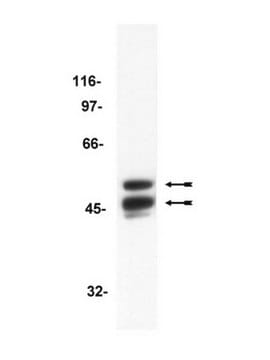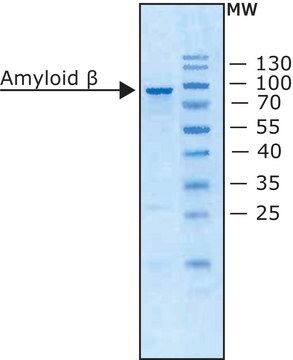O0884
Monoclonal Anti-Oncostatin M antibody produced in mouse
clone 17001, purified immunoglobulin, lyophilized powder
Sinónimos:
Anti-OSM
About This Item
Productos recomendados
biological source
mouse
Quality Level
conjugate
unconjugated
antibody form
purified immunoglobulin
antibody product type
primary antibodies
clone
17001, monoclonal
form
lyophilized powder
species reactivity
human
technique(s)
indirect ELISA: suitable
neutralization: suitable
western blot: suitable
isotype
IgG2a
UniProt accession no.
storage temp.
−20°C
target post-translational modification
unmodified
Gene Information
human ... OSM(5008)
Categorías relacionadas
General description
Specificity
Immunogen
Application
Physical form
Preparation Note
Disclaimer
¿No encuentra el producto adecuado?
Pruebe nuestro Herramienta de selección de productos.
Storage Class
11 - Combustible Solids
wgk_germany
WGK 1
flash_point_f
Not applicable
flash_point_c
Not applicable
ppe
Eyeshields, Gloves, type N95 (US)
Elija entre una de las versiones más recientes:
¿Ya tiene este producto?
Encuentre la documentación para los productos que ha comprado recientemente en la Biblioteca de documentos.
Nuestro equipo de científicos tiene experiencia en todas las áreas de investigación: Ciencias de la vida, Ciencia de los materiales, Síntesis química, Cromatografía, Analítica y muchas otras.
Póngase en contacto con el Servicio técnico








